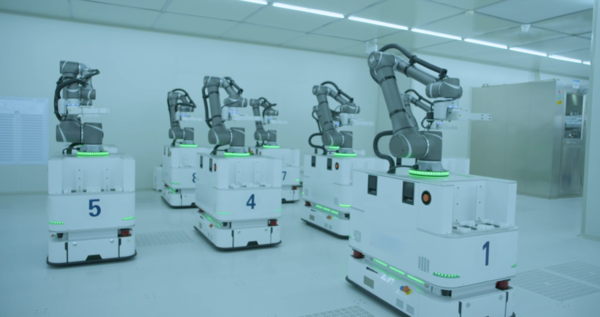© © 2025 Copyright © Youibot Robotics Co., Ltd. All rights reserved.SitemapPrivacy Policy
In today's rapidly evolving industrial landscape, the integration of mobile robots, particularly autonomous mobile robots, is becoming increasingly prevalent. The adoption of these robots carries numerous potential benefits, including enhanced productivity, superior product quality, and the ability to operate in hazardous environments. However, concerns linger about whether these robots are poised to replace human jobs, especially in the wake of the post-pandemic era. In this article, we will explore the coexistence of mobile robots and human labor, emphasizing that they are not job killers but vital components of the collaborative workforce.
Contrary to common misconceptions, it is important to dispel the myths surrounding the impact of robotics on employment in the manufacturing sector.
One key revelation is that robot implementation in manufacturing does not significantly reduce employment. Analyzing data from various sources indicates that robotics investments in manufacturing do not lead to widespread human worker displacement. Instead, the positive impact of robots on productivity and overall sales contributes to job creation.
Research in the field indicates that the introduction of mobile robots, even those designed to save labor, can stimulate job growth. The extent of this impact varies and depends on factors such as industrial resilience, competitiveness, and innovation capacity within a given region or industry. In summary, mobile robots and automation technologies typically complement human work rather than replacing entire jobs, focusing on specific tasks.

As we embrace the Industry 4.0 era, characterized by increasing automation and digitization, the significance of mobile robots, especially collaborative ones, becomes apparent. These robots offer various advantages that not only debunk the job replacement myth but also enhance human working conditions.
Mobile robots, designed to work alongside humans without the need for protective barriers, are vital tools for enterprises seeking to boost overall efficiency. They can handle intricate and complex tasks in the production line, ensuring consistency and product quality. Human workers can then focus on supervisory roles and higher-level processes, creating smarter and more efficient factories.
Mobile robots excel at assuming control of potentially hazardous tasks within various work environments. These robots operate without experiencing fatigue, distractions, or errors, and their user-friendly design ensures they pose no threat to human workers. In scenarios necessitating operations in hazardous environments, remote-controlled mobile robots offer a solution for operators to execute tasks safely from a distance. As supported by numerous case studies and reports, the integration of mobile robots in workplaces has consistently led to a substantial reduction in accidents and the establishment of a safer and more reassuring working environment for employees.
Mobile robots benefit not only large-scale industrial factories but also small and medium-sized enterprises. They reinforce competitiveness, enhance profitability, and simultaneously improve the work environment while reducing the risk of occupational hazards. Instead of replacing human jobs, mobile robots can assist in automating the laborious, complex, and hazardous tasks within different industries.
The adoption of mobile robots presents an opportunity for innovation and progress across various industries. They are not the harbingers of job loss but vital collaborators in the quest for higher productivity and safer work environments. Businesses can thrive, maintain consistent revenues, and offer their employees opportunities for skill development, with companies like Youibot leading the way. As a pioneering force in the mobile robotics industry, Youibot stands ready to empower your journey toward a brighter and more secure future.
By continuing to use the site you agree to our privacy policy Terms and Conditions.